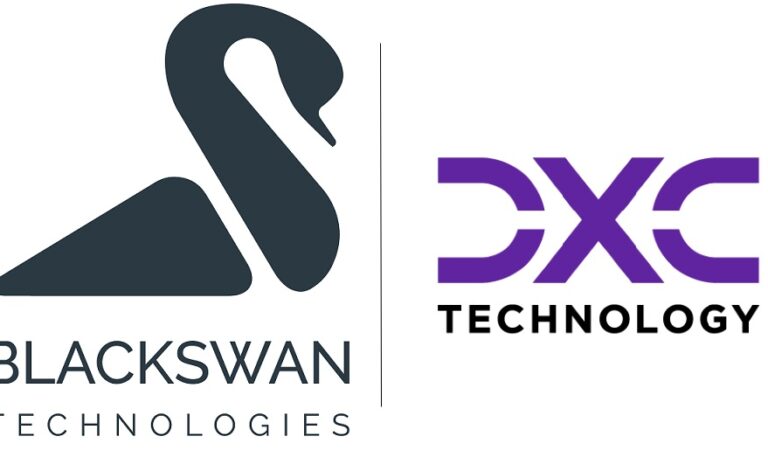
Dec. 07, 2021
The Push for More Transparent UBO Reporting and What It Means for Financial Institutions
By Harinder Singh Sudan and Nadee Wije @BlackSwan Technologies
Regulatory agencies are calling for greater transparency into ultimate beneficial ownership with stricter penalties for non-compliance
Regulatory agencies have called for greater transparency into ultimate beneficial ownership (UBO) over the last few years, as financial crime investigations revealed the pervasive use of anonymous companies to hide the beneficiaries involved. Recent years have seen increasingly stringent UBO reporting requirements and stricter penalties for non-compliance, and this trend is bound to continue.
While greater transparency around business ownership is beneficial in the fight against financial crime, preventing illicit actors from exploiting opaque corporate structures for anonymity, the new UBO requirements mean additional compliance workloads for financial institutions.
Compliance staff are burdened with making adjustments to the collation of data in order to make use of recently introduced nationwide and continent-wide UBO registers. This is putting additional strain on already stretched resources, as customer due diligence is still labour-intensive at many firms.
Thus, firms need additional technological support to accommodate new UBO reporting requirements while staying up to date with recent developments.
The Global Push Towards Transparent UBO Reporting
There has been a global push towards collecting beneficial ownership information at the incorporation stage of companies and making it accessible to law enforcement, financial institutions, and other relevant authorities.
As a leader in business ownership transparency, the UK introduced the first national UBO register in 2016 while still part of the EU. Its Companies House registry stores comprehensive information about UBOs, which the UK refers to as Persons of Significant Control (PSC), and is made accessible to the public.
The EU has also remained a leader in establishing and enforcing UBO reporting obligations with its AML directives. Most recently, the EU introduced its 6th Anti-Money Laundering Directive (6AMLD) which reinforces its 4th and 5th Anti-Money Laundering Directive (4AMLD and 5AMLD), all aimed at combating money laundering and terrorist financing through various mechanisms including beneficial ownership transparency.
The 4AMLD was introduced to mandate the establishment of national UBO registers in EU Member States. These registers were also required to be made accessible to relevant authorities such as national financial intelligence units, legal advisors, and other parties with legitimate interest such as investigative journalists.
These national UBO registers were subsequently required to be made public under the EU’s 5AMLD with the exception of information pertaining to personal assets such as bank accounts and trusts. The 5AMLD also called for these registries to be linked at an EU level to facilitate information sharing between member state authorities.
The US is following in the footsteps of the UK and EU, recently introducing a national beneficial ownership repository accessible by law enforcement and financial institutions. This would simplify the verification of business ownership information for financial institutions when onboarding customers.
Regulators are imposing fines and penalties to enforce these UBO regulations. In the EU, penalties resulting from failure to comply with UBO regulations vary between member states. As such, fines range from €6,000 in Spain to €100,000 in Germany to €1.25m in Luxembourg. And in the US, companies that fail to provide beneficial ownership information risk facing significant fines and jail time.
UBO Information Search and Discovery with AI
The assessment of beneficial ownership during customer due diligence is still highly labour-intensive at many financial services firms, and the new UBO reporting requirements are further complicating the process. This is particularly true for firms with presence in multiple jurisdictions, which makes UBO assessment even more costly and inefficient.
While strides have been made in mandating the establishment, and sometimes interconnection, of national UBO registries, there have been reports of discrepancies. This is due to difficulties government agencies face in verifying sheer volumes of UBO information. Thus, firms are still unable to fully rely on UBO registries when performing customer due diligence, which means that they still need to obtain information from other sources for verification.
With advanced technologies such as machine learning and natural language processing, firms can orchestrate the required data from UBO registries as well as multiple internal and external sources, in both structured and unstructured formats. This simplifies the collation and management of UBO information and reporting, enabling firms to more easily remain compliant with KYC obligations across multiple jurisdictions.
By leveraging knowledge graphs, which represent entities and the complex relationships between them with conceptual maps, firms can build holistic client and counterparty profiles with all required beneficial ownership information while performing entity resolution to clarify ambiguous data such as name spellings. Firms can also analyse connections within complex networks of clients and counterparties to discover hidden relationships between beneficial owners, then screen against PEP lists and sanctions lists.
This all enables firms to more efficiently process and maintain up-to-date information about ultimate beneficial owners.
BlackSwan’s Approach to Managing UBO Information and Reporting
BlackSwan Technologies’ ELEMENT of Compliance™ enables financial institutions to more efficiently collate and retain information about beneficial owners by orchestrating the required data from multiple internal and external sources, including national UBO registries. This simplifies the collation and management of UBO information and reporting while minimising resource-intensive tasks, enabling financial institutions to more easily comply with KYC obligations. Key features include:
- Enrichment of client profiles with ownership information from internal and external sources, including UBO registries, open source intelligence and paid sources
- Entity resolution of beneficial ownership information to distinguish between entities across data sources with similar identifying characteristics
- Analysis of relationships within complex networks of clients and counterparties using knowledge graph technology to discover links between beneficial owners
ELEMENT of Compliance is a complete solution that includes pKYC, Watchlist Screening, Adverse Media Monitoring, Transaction Monitoring and Transaction Intelligence. With a highly modular architecture, ELEMENT can be implemented as an end-to-end enterprise solution or a bespoke set of integrated solutions.
Learn more about BlackSwan Technologies’ ELEMENT of Compliance™ here.
Harinder Singh Sudan is a Senior Vice President of the Financial Intelligence Unit at BlackSwanTechnologies. He has close to 20 years industry experience in banking and financial services and leads BlackSwan Technologies’ FIU practice globally.
Nadee Wije is a Copywriter at BlackSwan Technologies. Certified in copywriting and content marketing, she has over 3 years of experience writing sales and marketing content for emerging B2B technology companies across the globe.
Learn more about ELEMENT of Compliance here and follow us on Twitter and LinkedIn


